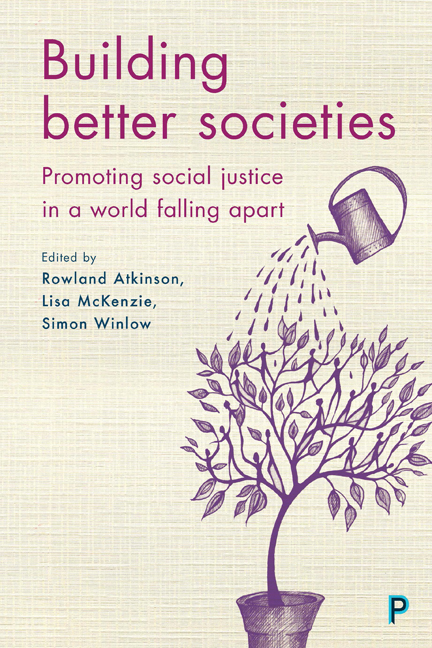Seven - Artfully thinking the prosocial
Published online by Cambridge University Press: 05 April 2022
Summary
‘Little boy running along – Bell ringing – Drill – Stick rattling fence – Orange leaves dancing in wind – Warm sun kissing face – Spring green grass – Bright yellow flower’
‘I saw everything green
The sky attracts my thoughts
Same but different.’ (translated from Karen Burmese)
‘Ants birds burnt house Buddha bus stop breeze dirt dry grass cats & dogs heavy breathing fruit trees cough heavy feet walking stick up hill to vantage point lovely view IGA shop burnout marks on road.’
These words were generated by residents of low-income neighbourhoods who participated in a series of art-based workshops that explored issues of place and identity. Along with images, the words evoked sights, sensations and feelings as we walked together around their neighbourhood, learning to perceive it in new ways. The residents participating in the workshops were of varied ages and ethnic backgrounds, and the activity drew loosely on different practices of ‘walking as art’, including the Situationists’ notion of the dérive and the textworks of the artist, Richard Long. We thus invited our participants to observe the features of their surroundings, and to foster awareness of their subjective, embodied, sensory and psychological experiences of our pedestrian passage through familiar suburban environments.
Participants sometimes photographed their observations of the neighbourhood sites, and were again invited to notice and value what they were visually or emotionally drawn to. On other walks, people were invited to bring objects from home that they felt somehow represented their identity. They explored placing these objects in playful relation to the local environment, symbolically claiming their own presence. In one site, residents painted and decorated empty picture frames and took these ‘for a walk’ to photograph them in the landscapes, performing the idea that what we see is impacted by how it is framed or presented to us. Images that were generated during the walking activities were incorporated into collaborative artworks that were used to present nuanced and textured images of suburbs from residents’ perspectives.
The arts-based activities we have thrown at you here form part of an experimental approach for social research that fuses sociological insights with creative practice. In this chapter we explain why we consider this approach might contribute to promoting wider attempts to foster a prosocial ethos and practice.
- Type
- Chapter
- Information
- Building Better SocietiesPromoting Social Justice in a World Falling Apart, pp. 81 - 94Publisher: Bristol University PressPrint publication year: 2017



